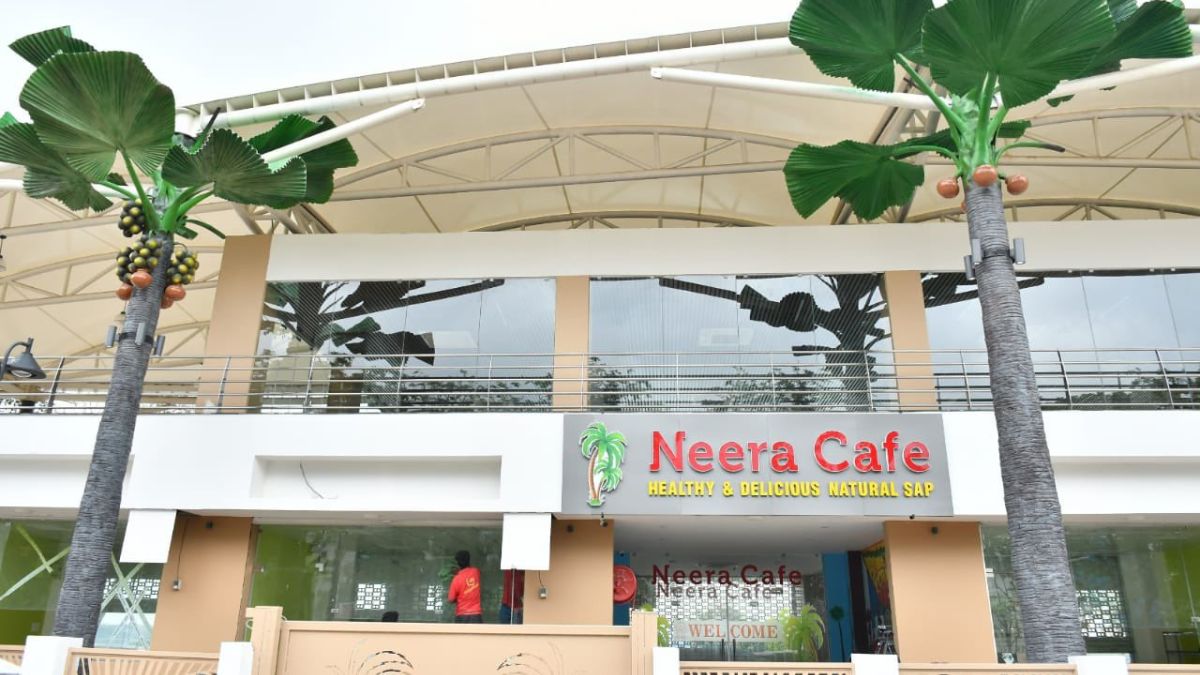Every region in India has different topography, and you will find different food specialities. One of them is neera, a palm nectar drink. This nectar is a storehouse of various health benefits. The Telangana state government is aiming to promote this healthy drink and to ensure financial sustenance to the community of toddy tappers. On Wednesday, the government opened the state’s first Neera Cafe in Hyderabad!
Neera Cafe In Hyderabad
On Wednesday, the Telangana government inaugurated the first Neera Cafe in Hyderabad. Located near Hussain Sagar Lake, this cafe will serve the drink in packaged bottles that will be stored in sub-zero temperatures. Besides this, the cafe will serve byproducts like jaggery and honey.
Telangana State Tourism Development Corporation (TSTDC) will maintain the cafe. And Telangana State Prohibition and Excise Department will support the maintenance work. Excise Minister V Srinivas Goud, who hails from the community of toddy tappers, initiated this project. The government will create more Neera procurement hubs with an aim to increase the market for Goud-community private companies.
Also Read: Hyderabad Waalo, Lord Of The Drinks Makes A Stellar Debut To Your City
Beneficial For Toddy Tappers’ Community
Currently, the government has the ability to purchase about 1,000 litres of neera per day. The authorities identified two villages, Mudwin and Cherikonda, in the Rangareddy district, 50 kilometres from Hyderabad, where 500 indigenous toddy tappers have received training on protecting the sap without allowing it to ferment. They were given specially made boxes that could maintain the temperature of the freshly harvested nectar at or below zero degrees Celsius.
According to The Indian Express report, the society that provides neera is compensated up to ₹160 per litre. When it is released onto the market, the same is sold for ₹300 per litre. The cost of a packaged 300 ml bottle at the Neera cafe in Hyderabad is ₹90. It is advisable to consume the beverage within four days and to keep it at a temperature of less than four degrees. To stop the nectar from fermenting during production, transportation, or storage, a cold chain system was created.
Also Read: New US Consulate In Hyderabad Will Process Over 3000 Visa Applications Every Day
The Central Plantation Crops Research Institute (CPCRI), with its headquarters in Kasaragod, Kerala, is responsible for developing and disseminating the technology.
Cover Image Credits: Samba Siva Rao/ Twitter

